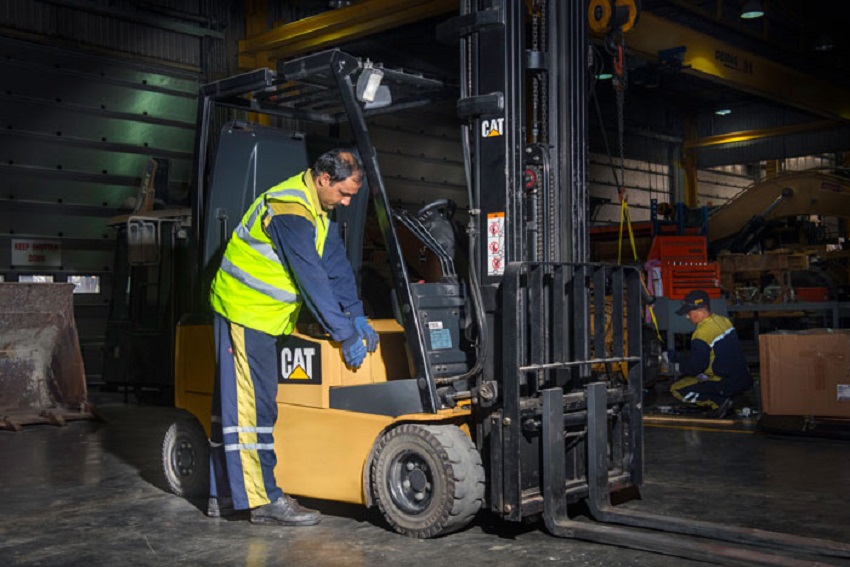The Benefits of Professional Forklift Battery Servicing

Forklift batteries are costly investments, and getting the most out of their lifespans is critical for maximizing productivity and minimizing downtime. While some battery maintenance tasks can be handled by in-house staff, others require professional service. For example, battery washing removes caked-on electrolytes and extends battery life. But workers need acid-resistant personal protective equipment (PPE) such as steel-toed work boots, chemical splash goggles, and an acid-resistant apron.
Cost
Forklift batteries are expensive, and it is essential to ensure their lifespan is maximized. Regular maintenance and cleaning reduce the risk of premature failure. A preventative forklift battery service schedule also reduces the cost of repairs and replacement. A service technician should check for any signs of overcharging, undercharging, or other issues. They should equalize the batteries periodically to balance acid levels. This will extend the lifespan of your forklift batteries by as much as 50 percent. Batteries should be washed regularly to prevent corrosion. During everyday use, lead-acid batteries lose a small amount of electrolyte, which builds up as sludge on the tops of the cells. This buildup reduces the battery’s lifespan and causes short-circuiting, reducing efficiency and potentially harming the forklift. Washing a forklift battery on a scheduled basis removes this caked-on acid, extending the battery’s life by as much as 50 percent and minimizing damage to the terminals. Forklift batteries are heavy and should only be handled by a trained professional or with special equipment, such as a walkie-pallet jack equipped with a transfer carriage. A safety checklist should be posted, and training conducted to help educate warehouse staff about proper battery care. The battery manufacturer’s guide lists the expected battery life span, and a commitment to best practices helps to ensure this is reached.
Safety
Performing routine maintenance on forklift batteries prevents costly repairs and replacements. It also helps maximize battery life and ensures your warehouse operations run efficiently. Ensure that employees wear the proper safety equipment when handling battery acid. It is highly corrosive and can cause severe chemical burns if it comes into contact with the skin. Establishing a designated charging station will help avoid injuries by ensuring untrained personnel does not handle the forklift battery. It should have a water supply, signs, a fire extinguisher, ventilation, and a phone for emergencies. Forklift battery maintenance includes checking water levels, ensuring cables and connectors are secure, and equalizing the battery weekly. Canceling the forklift battery mixes electrolytes, removes plate sulfation, and balances cells. In addition, it can reduce the risk of short circuits and eliminate the need to replace forklift batteries early due to undercharging. It is also essential to record battery cycles and maintenance information daily. It is advisable never to let a forklift battery discharge beyond the allotted threshold since it will cause permanent damage. If a forklift battery shows signs of excessive sulfation or acid leakage, it should be inspected by a professional. These problems should be corrected immediately before they cause further damage. An experienced forklift professional can recommend the right battery solution for your facility.
Efficiency
The correct battery and charger are vital for performance and efficiency. Whether your forklift fleet is running on lithium-ion or traditional lead acid, having a consistent maintenance schedule helps extend the lifespan of your batteries and forklifts. Maintaining correct water levels is vital for optimal battery life. Low water levels cause overheating and acid dilution, which leads to shorting (fusing) the cell terminals. Overcharging or cutting a charging cycle short can severely reduce battery life. Proper maintenance also includes a cleaning schedule. During the battery’s aging process, a buildup of electrolyte residue forms on the cells and can corrode the cell terminals. If the residue is not removed, it can produce a conductive circuit between the steel case and cell terminals, causing overcharging and rapid discharging. To prevent this from happening, ensure that the forklift battery charger’s finishing rate is set to one-half of the average charge rate. A slower pace will prevent excessive gassing and keep the cell temperatures in the batteries below the lower explosive limit.
Reliability
Keeping forklift batteries and chargers at peak performance contributes to the longevity of your motive power equipment and warehouse crew. In addition to inspections and cleaning, a regular maintenance schedule should include checking water levels and refilling when necessary. Watering a battery can be done with clean tap water, but only after the battery has been charged. Doing this at the right time is critical because allowing a forklift battery to operate below 20 percent can cause it to supply its electrical system with more amperage than it needs, producing excessive heat that shortens its life expectancy. When not properly maintained, forklift batteries can suffer from excessive sulfation and acid leakage. This can lead to a conductive circuit between the steel casing and lead posts, which causes the battery to self-discharge and eventually corrode the terminals. To prevent these issues, having a designated charging station at your facility where you can store the batteries and use proper handling techniques is essential. Ensure that this area has signs, a fire extinguisher, ventilation, and a water source to remove chemical residues. Also, learn more about the safety considerations of dealing with batteries, such as ensuring that workers wear protective gloves and use proper storage for these hazardous materials.
